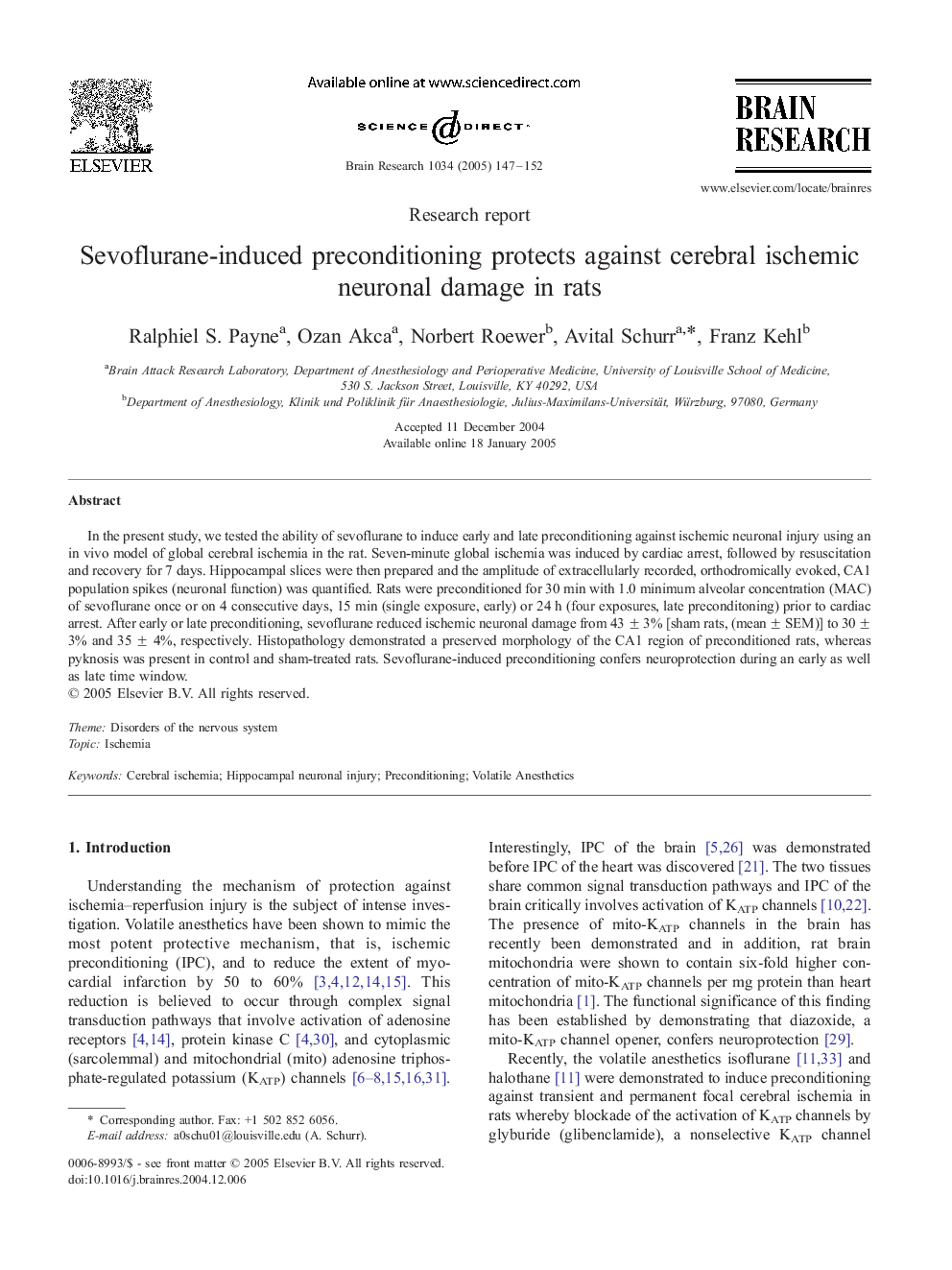| Article ID | Journal | Published Year | Pages | File Type |
|---|---|---|---|---|
| 9416836 | Brain Research | 2005 | 6 Pages |
Abstract
In the present study, we tested the ability of sevoflurane to induce early and late preconditioning against ischemic neuronal injury using an in vivo model of global cerebral ischemia in the rat. Seven-minute global ischemia was induced by cardiac arrest, followed by resuscitation and recovery for 7 days. Hippocampal slices were then prepared and the amplitude of extracellularly recorded, orthodromically evoked, CA1 population spikes (neuronal function) was quantified. Rats were preconditioned for 30 min with 1.0 minimum alveolar concentration (MAC) of sevoflurane once or on 4 consecutive days, 15 min (single exposure, early) or 24 h (four exposures, late preconditoning) prior to cardiac arrest. After early or late preconditioning, sevoflurane reduced ischemic neuronal damage from 43 ± 3% [sham rats, (mean ± SEM)] to 30 ± 3% and 35 ± 4%, respectively. Histopathology demonstrated a preserved morphology of the CA1 region of preconditioned rats, whereas pyknosis was present in control and sham-treated rats. Sevoflurane-induced preconditioning confers neuroprotection during an early as well as late time window.
Keywords
Related Topics
Life Sciences
Neuroscience
Neuroscience (General)
Authors
Ralphiel S. Payne, Ozan Akca, Norbert Roewer, Avital Schurr, Franz Kehl,
